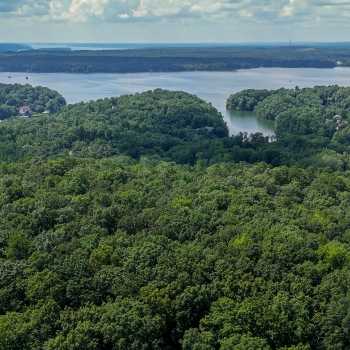Why Hancock County Tennessee Land Attracts Buyers
Hancock County offers a rare blend of affordability, natural beauty, and self-sufficient living. It’s one of Tennessee’s most secluded counties, drawing land buyers who want privacy, independence, and good value per acre. Much of the land is wooded or steep, making it ideal for timber, hunting, or a quiet off-grid cabin. Creekfront tracts, while limited, are often spring-fed and surrounded by hardwoods.
Unlike more developed counties, Hancock doesn’t come with zoning headaches or subdivision restrictions. You’ll find multi-acre tracts with no HOA and no close neighbors. Locals raise cattle and tobacco, run sawmills, or live simply with gardens and livestock. For investors, the timber value and hunting lease potential provide multiple income angles. And for families or individuals, the landscape gives you room to build something your own way—whether that’s a rustic homestead or a timber-hunting hybrid with future resale upside.
Land Buyers Value the Remote Natural Features of Hancock County TN
Hancock County’s landscape is defined by sharp ridgelines, cool mountain hollows, and spring-fed streams. The Clinch River and its surrounding slopes support a variety of wildlife, rare plant life, and hardwood forests. Buyers come here for unspoiled ground, rugged character, and land that hasn’t been carved up by development. Even small tracts feel vast thanks to the elevation changes and thick cover.
Clinch River Corridor
The Clinch River winds through Hancock County, supporting native fish, mussels, and pristine mountain views. It’s a key draw for anglers and conservation-minded landowners.
Mountain Hollows
Narrow coves and hollows provide natural shelter, year-round water, and excellent habitat for wildlife. These secluded spots are ideal for hunting cabins or off-grid homesteads.
Old-Growth Hardwoods
Much of the land holds stands of mature oak, hickory, and poplar. Timber has long been a source of local income, and these forests still hold future value for selective harvesting.
Timber, Tobacco, and Cattle Land Investment in Hancock County TN
Investors looking at Hancock County land typically see three options: timber, livestock, or traditional crops like tobacco. Each has a foothold here, and most tracts offer overlap—forest on the ridges, pasture or field in the bottoms. Low population density and relaxed land-use regulations make it easier to manage these operations without interference.
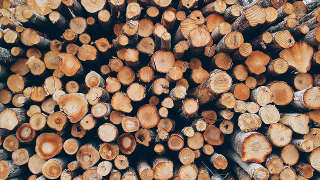
Hardwood Timber
Many properties have harvestable hardwood stands, including white oak, red oak, poplar, and hickory. Timber income is cyclical but reliable, with selective logging providing passive revenue. The steep terrain often protects old-growth areas, adding long-term value. Logging roads also double as hunting trails or future access points for development.
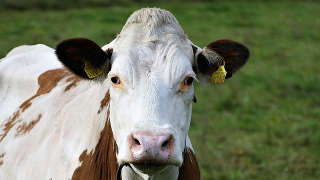
Cattle and Grazing
Most open acreage in Hancock is used for hay or cow-calf operations. Smaller fields tucked into hollows provide shade, water, and fencing with minimal input. With fewer than 7,000 residents countywide, there’s minimal land-use conflict. Grazing leases are common, and buyers can step into a working farm or start fresh with cleared land and a tractor.
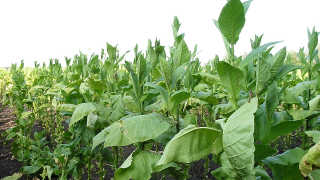
Tobacco Farming
Though in decline statewide, Hancock County still produces burley and dark-fired tobacco on small patches. These are typically family-run and use traditional curing barns. New owners often continue the legacy or lease fields to experienced neighbors. The infrastructure is simple, and tobacco remains a niche but resilient crop tied to local identity.
Wildlife, Fishing, and Game Species in Hancock County TN
Wild ground and limited development mean Hancock County supports diverse wildlife beyond the usual game. Mountain hollows and river corridors hold turkey, black bear, bobcat, and red fox. Streams support coolwater species like redbreast sunfish and rock bass. And in the Clinch River, mussels and hellbenders highlight the ecological uniqueness of the region. Hunters and anglers looking for a secluded spot will find few better options in Tennessee.
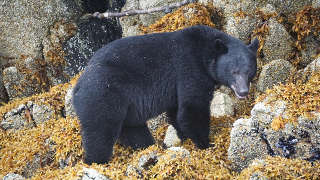
Black Bear
Bear activity has been rising along Clinch Mountain, with game cams capturing regular sightings. These deep woods provide excellent denning and natural food sources.
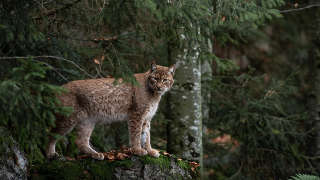
Bobcat
Bobcats thrive in the dense cover of Hancock’s ridges. They’re elusive but present throughout the county, often seen along old logging roads or rocky ledges.
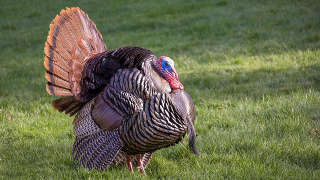
Wild Turkey
Gobblers can be heard throughout spring, especially near overgrown pastures and creek bottoms. Long beards are common due to low hunting pressure.

Creek & River Fishing
Streams and sections of the Clinch River offer redbreast sunfish, smallmouth bass, and even muskie further downstream. Limited access means light fishing pressure.
Hancock County TN Offers Solitude, Self-Reliance, and Scenic Living
Some counties feel like the world is closing in. Hancock County feels like the world forgot about it—in a good way. Here, there are no chain stores, no traffic, and no fuss. It’s a place where people live quiet lives on land they care for, and where newcomers are left to do the same. Whether you’re a retiree looking to fish a creek in peace or a homesteader planting your own food, this is a good place to do it with nobody breathing down your neck.
Rural Land for Sale in Counties Near Hancock County TN
Hancock County sits near the Virginia border in one of Tennessee’s most rural regions. Several nearby counties also offer strong land values and low development pressure.
Hawkins County
Hawkins offers more road access and slightly larger farm operations. Land is still affordable and supports strong hay and cattle operations.
Grainger County
Known for tomatoes and Lake Cherokee access, Grainger mixes farming with recreation and offers more lakefront options than Hancock.
Jefferson County
Borders Cherokee Lake to the south. Good access to I-40 and farm markets in Dandridge and White Pine.

